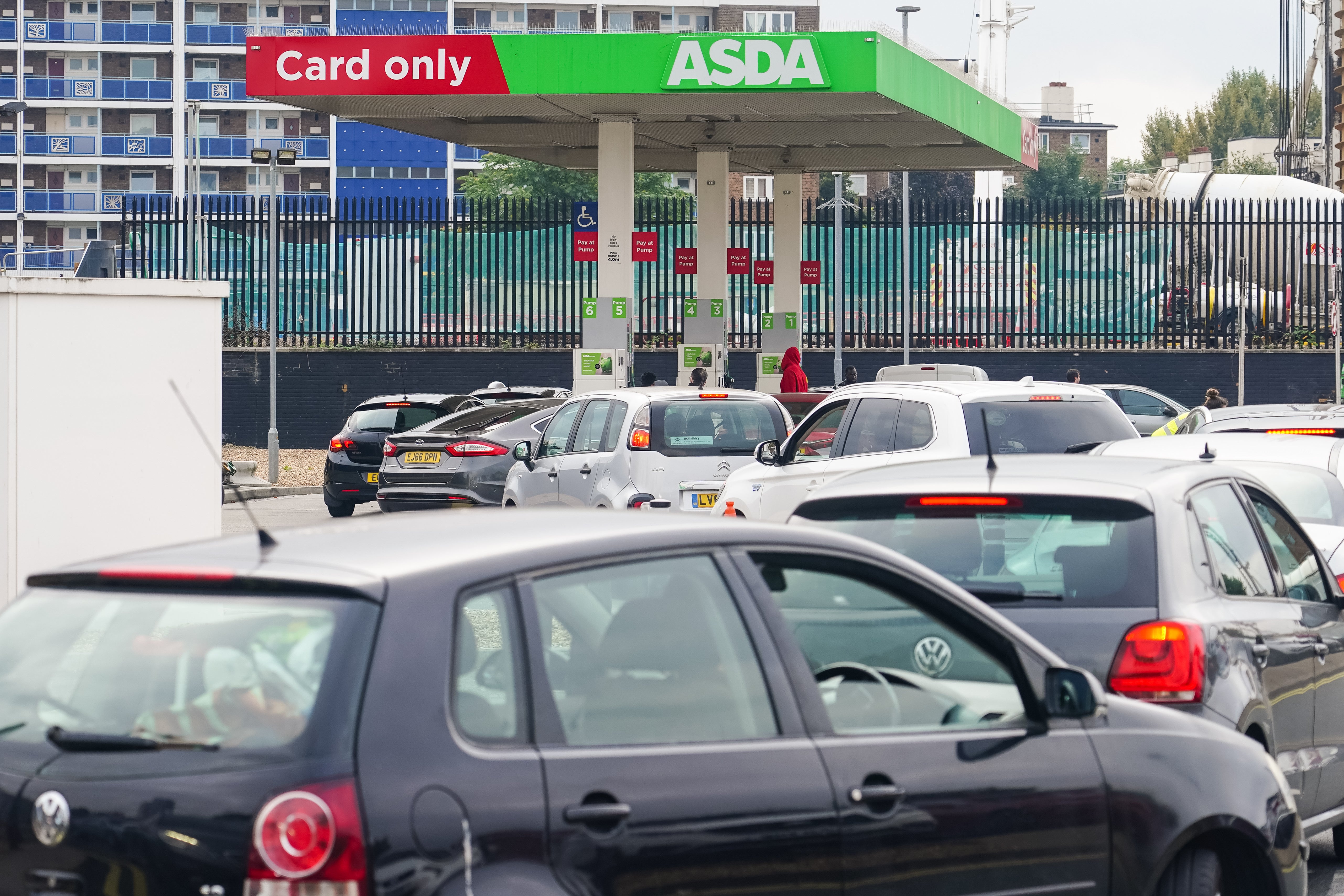Competition law suspended as ministers step in to battle petrol panic buying
The Business Secretary said the temporary exemption for the industry will allow targeted supplies to be sent to areas running low on fuel.

Your support helps us to tell the story
From reproductive rights to climate change to Big Tech, The Independent is on the ground when the story is developing. Whether it's investigating the financials of Elon Musk's pro-Trump PAC or producing our latest documentary, 'The A Word', which shines a light on the American women fighting for reproductive rights, we know how important it is to parse out the facts from the messaging.
At such a critical moment in US history, we need reporters on the ground. Your donation allows us to keep sending journalists to speak to both sides of the story.
The Independent is trusted by Americans across the entire political spectrum. And unlike many other quality news outlets, we choose not to lock Americans out of our reporting and analysis with paywalls. We believe quality journalism should be available to everyone, paid for by those who can afford it.
Your support makes all the difference.Competition law has been suspended in an attempt to get a grip on the fuel shortages being driven by panic-buying motorists, ministers have announced.
The decision comes after Business Secretary Kwasi Kwarteng met with oil companies and retailers on Sunday to address another day of continued queuing for the pumps, with thousands of petrol stations running dry.
A scuffle at a north London petrol station was posted on social media as motorists waited to fill up their tanks in a bout of “frenzied buying” sparked after concerns from BP that the HGV driver shortage could impact its ability to keep up with fuel deliveries were leaked to the media.
Mr Kwarteng has opted to temporarily exempt the industry from the Competition Act to allow the industry to share information so it can target areas where fuel supply is running low.
The triggering of what is known as the Downstream Oil Protocol comes as the Petrol Retailers Association (PRA) warned that as many as two-thirds of its membership of nearly 5,500 independent outlets was out of fuel, with the rest of them “partly dry and running out soon”.
Mr Kwarteng said: “We have long-standing contingency plans in place to work with industry so that fuel supplies can be maintained and deliveries can still be made in the event of a serious disruption.
“While there has always been and continues to be plenty of fuel at refineries and terminals, we are aware that there have been some issues with supply chains.
“This is why we will enact the Downstream Oil Protocol to ensure industry can share vital information and work together more effectively to ensure disruption is minimised.”
In a separate joint statement from the likes of Shell, ExxonMobile and Greenergy, the industry reiterated that the pressures on supply were being caused by “temporary spikes in customer demand, not a national shortage of fuel”.
PRA chairman Brian Madderson told the BBC the shortages were down to “panic buying, pure and simple”, with priority by oil companies being afforded to keeping motorway service station pumps topped up.
According to The Times, Prime Minister Boris Johnson is mulling whether to send the Army in to drive fuel tankers as a way of solving the current shortage of specialised drivers.
Transport Secretary Grant Shapps on Sunday refused to rule out calling in the Army, telling the BBC’s The Andrew Marr Show: “We will do whatever is required.
“The Army are going to at the moment make sure we are testing HGV drivers, that’s where the bottleneck is.”
The intervention comes less than 24 hours after the Government announced a temporary visa scheme that will see 5,000 foreign HGV drivers and 5,500 poultry workers allowed into the UK on three-month contracts up to Christmas Eve in an attempt to keep supermarket shelves stocked with turkeys and tackle fuel delivery difficulties.
But retailers warned that the decision to relax immigration rules to fix supply chain issues was “too little, too late” to keep shop shelves fully stocked this Christmas.
British Retail Consortium director Andrew Opie, asked what shop shelves might look like by late December, told the BBC: “I think we’re going to see less choice, less availability, possibly shorter shelf life as well, which is really disappointing because this could have been averted.
“I think it’s inevitable now, just through the shortage of drivers, that we won’t be able to get all the products on to the shelves that we would have liked to.”
The Confederation of British Industry (CBI) criticised the “limited scope” of the Government’s measures, while Labour leader Sir Keir Starmer suggested ministers should create enough visas to fill all 100,000 vacancies in the haulage industry.
Sir Keir told Marr: “We have to issue enough visas to cover the number of drivers that we need.”
Cabinet minister Mr Shapps said visas were “only one element” of the state intervention, as he admitted efforts to rebuild the domestic freight workforce could take years.
The package of measures involves ambitions to train 4,000 more lorry drivers, while the Army have been drafted in to provide extra HGV driving tests to reduce the backlog caused by the coronavirus pandemic lockdowns.
Nearly one million letters will also be landing on the doormats of people with HGV licences in the coming days enticing them to return to the job now that wages have risen.
The Government is keen to see better conditions in terms of truck-stop facilities as it bids to shift the workforce demographic from being mostly white, male and in their mid-50s.